Couple Years of Protection:
1,59,72,012: Male Condom
14,53,802: OCP
18,75,063: IUCD
7,839: Male Sterilisation
13,26,949: Female Sterilization
27,325: Injectable – DMPA
Family planning is not just a population control mechanism, but an incredible tool of empowerment for couples. Through provision of choices and awareness about contraception, family planning significantly reduces the vulnerabilities of unwanted or untimely pregnancies, unsafe abortions, poor maternal and child health, thus saving precious lives of mothers and babies.
Global consensus has placed it under the continuum of healthcare by making Universal Access to Reproductive Healthcare a crucial Target under Sustainable Development Goals.
HLFPPT has been contributing towards the National Family Planning Programme across the spectrum. On the demand side, we are consistently working towards increasing contraception awareness & access among communities, counselling on FP methods, offering increased basket of choice; while on the supply side we are committed towards building capacities of health providers on FP services, creating network of dedicated FP Clinics, etc.
Operational in: Pan India | Partner: Multiple Partners
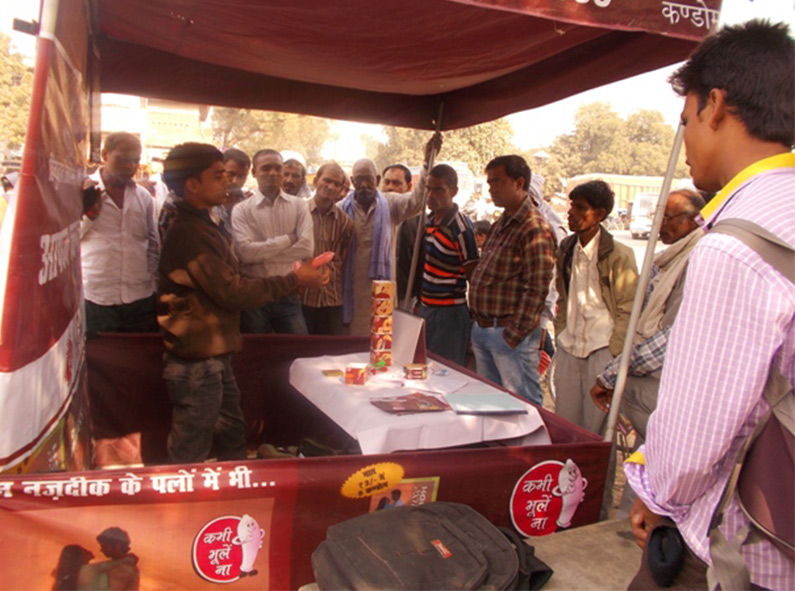
In order to make affordable reproductive health products accessible & available to all sections of society, HLFPPT has been conducting social marketing programme in multiple states across India. As a leader in Social Marketing, it has worked with NACO and the National Family Planning Programme in the last two decades for conducting Social Marketing of Condom as a means of family planning, prevention of unwanted pregnancies and protection against HIV/AIDS & other STDs. It has also been promoting other Contraceptives such as Contraceptive Injection (Safe-3), Female Condom (Velvet), IUCD (MCare CU 375, Emily), Standard Days Method (Ritumala); and Reproductive Health Products like Sanitary Napkin (Sakhi, Happy Days), Sanitary Napkin Vending Machine, Pregnancy Test Card (P-Test), Oral Rehydration Salt (Jal Jeevan) and Zinc Sulphate, etc, through social marketing. Currently, it is implementing the programme in 13 states: West Bengal, Punjab, Haryana, Himachal Pradesh, Bihar, Chhattisgarh, Odisha, Jharkhand, Delhi, Rajasthan, Andhra Pradesh, Madhya Pradesh & Uttar Pradesh.
This large-scale, multi-state programme is being implemented by HLFPPT under the guidance of the Ministry of Health & Family Welfare, GoI, with financial support from the State Health Missions, and in coordination with the State Institute of Health & Family Welfare since 2012. It aims at providing skill-based training on IUCD insertions to Health Service Providers (HSPs) including: Auxiliary Nurse Midwives (ANMs), Lady Health Visitors (LHVs), Staff Nurses and Medical Officers posted at Sub Centres, Primary Health Centres and Community Health Centres. The idea is to contribute in India’s commitment for FP 2020 of training 200,000 health workers on providing IUCDs. So far, it has been implemented in: Chhattisgarh, Jharkhand, Madhya Pradesh, Rajasthan, UP, Assam, Bihar, Haryana, Himachal Pradesh, Jammu & Kashmir, Odisha & Uttarakhand.
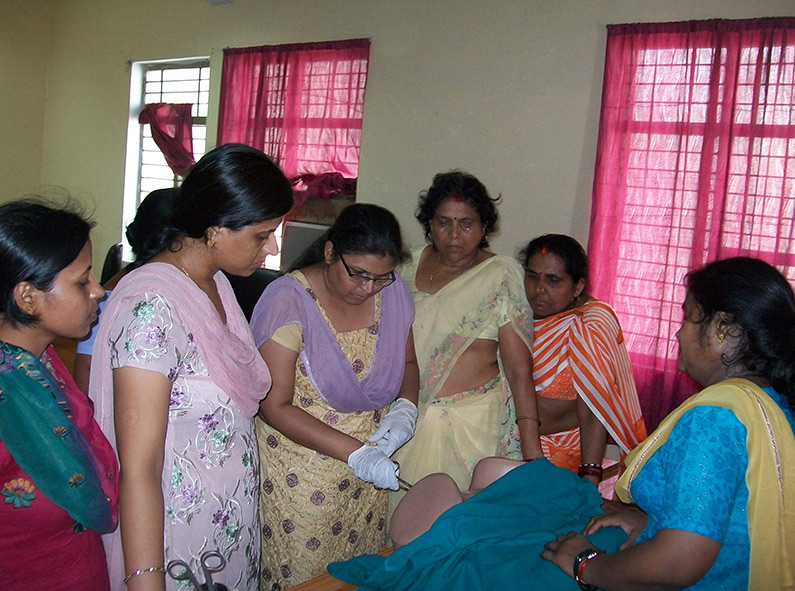
Operational in: Uttar Pradesh | Partner: National Health Mission-UP
To strengthen the quality & reach of family planning programme, the National Health Mission-UP has initiated participation of private sector organisations, nursing homes, etc, in the provision of family planning services in the state. For this, a strategic approach has been instituted under the name of FPPPEA that aims to promote involvement of the private sector in the provision of Family Planning products & services as per government norms. HLFPPT has partnered with NHM-UP for implementation of FPPPEA, under which it focuses on Mapping and Capacity Building of private providers on FP services, setting standards for quality assurance, etc. Accreditations have not only helped consumers with standardised rates & quality of FP services & products, but have also increased credibility of private facilities.
In order to increase the use of Long-Acting Reversible Contraceptives (LARC) and Long-Acting & Permanent Methods (LAPMs) by expanding choice and access among men and women residing in urban slums of Uttar Pradesh, HLFPPT has been working on an initiative called Expand Access and Quality to Broaden Method Choice in UP since December 2015. It aims to train and accredit health facilities in UP on Family Planning services and has placed thrust on integrating provision of LARC & LAPMs into the services. The programme is being implemented at 32 districts in UP (17 districts by HLFPPT & 15 by PSI). Training, quality assurance and accreditation are the key areas of focus under the programme.
Operational in: Uttar Pradesh (Lucknow) | Partner: Self-initiated
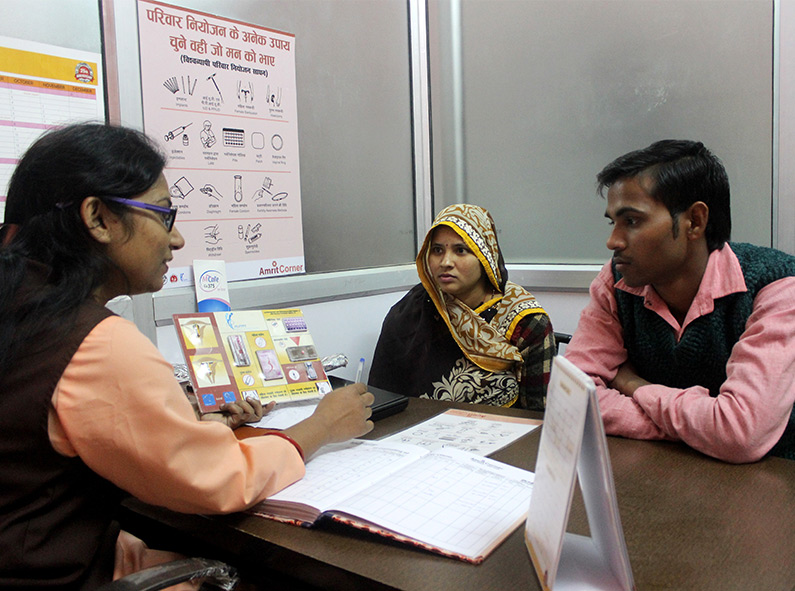
Amrit Clinic is a chain of comprehensive reproductive clinics that offer informed choice on globally-adopted Family Planning methods. These clinics essentially provide services for all modern methods for FP (spacing and limiting methods) available in India, including Counseling on all methods available, and facilitate IUCD Insertions, Injectables and Sterilisation (male and female) services. HLFPPT has set up first clinic in Lucknow, UP, and shall operationalise Amrit Clinics pan-India through Social Franchising.
Amrit Corner is a dedicated Family Planning Counselling Corner offering FP counselling to residents of Mohanlalganj block of Lucknow district, UP. It is being operated from CHC Mohanlalganj, with funding support from DLF Foundation as a CSR initiative.

Operational in: Madhya Pradesh | Partner: National Health Mission-MP
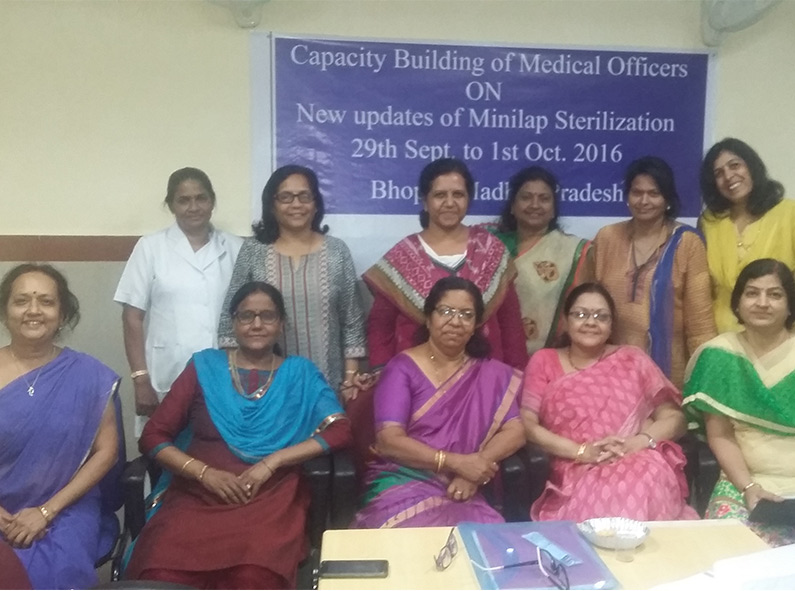
Under the guidance of the National Health Mission MP, HLFPPT has conducted Refresher Training of Medical Officers, Gynaecologists & Specialists on Latest Updates on Mini-Lap Sterilisation Method in Bhopal. Its objective has been to impart knowledge & skills among participants about latest technique of the sterilisation method, and also impart communication, managerial & surgical skills. It has trained participants on Pre-procedure Steps of Mini-Lap Sterilisation, Mini-Lap Kit, Practice checklist, etc, and also briefed them on Family Planning methods, significance of informed choice and importance of family planning counseling.
To rapidly scale up family planning and reproductive health services among underserved areas through private sector channels, HLFPPT in collaboration with DFID (UK), has implemented Reproductive Health Framework Project in Bihar and Odisha. It has aimed at reducing maternal deaths (from unwanted pregnancies) and high fertility rates by increasing use of family planning methods. Considering HLFPPT’s expertise in Social Marketing & Social Franchising, it has established & strengthened Social Franchisee Clinics and Social Marketing Outlets in the two states that seamlessly provide family planning and reproductive health products and services.
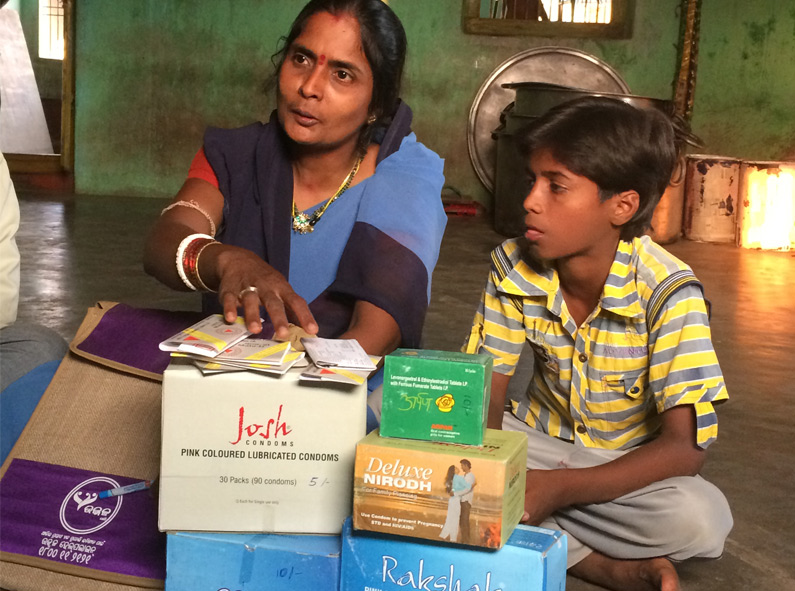
Implemented in: Uttar Pradesh (Kanpur) | Partner: Institute for Reproductive Health (Georgetown University, Washington)
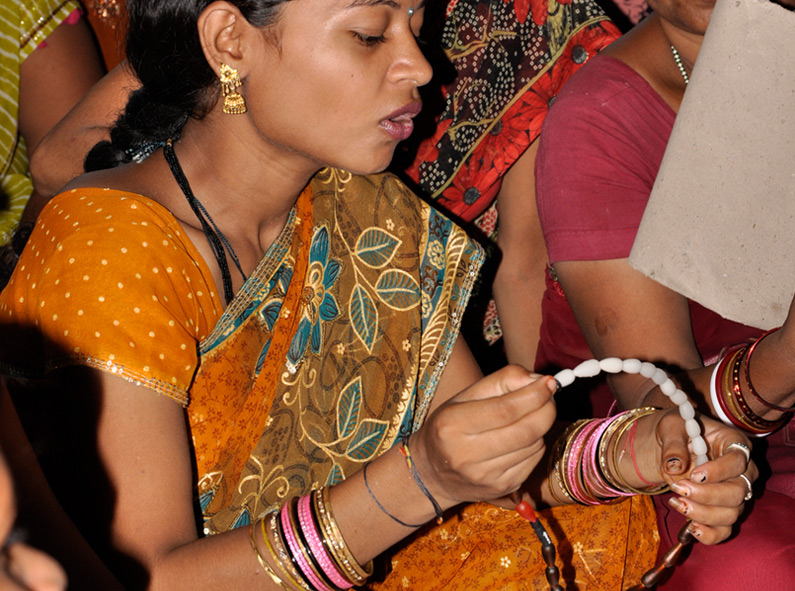
Standard Days Method (SDM) is a natural family planning method which can be especially effective in regions with high fertility but low contraceptive prevalence, such as Kanpur, which had 22.4% unmet need for family planning (higher than the national average of 20.5%) and low 17.5% contraceptive prevalence rate in 2008. This highlighted the need for introducing SDM to the basket of choices. As a leader in social marketing, HLFPPT undertook social marketing of CycleBeads under the brand name Ritumala in Kanpur for three years (2010-13).
The programme has focussed on improving reproductive health and family planning among the urban poor in Nigeria, Kenya, Senegal & India. HLFPPT has worked as a consortium partner with FHI 360 and implemented the programme in 11 cities of UP (Agra, Aligarh, Allahabad, Gorakhpur, Bareilly, Kanpur, Varanasi, Moradabad, Mathura, Farrukhabad, and Lucknow). Under the programme, key role of HLFPPT has been Social Marketing of Oral contraceptive Pills and Condoms.
Implemented in: Uttar Pradesh (Kanpur) | Partner: USAID and SIFPSA
To address the financial barriers in seeking institutional care, the project has provided free healthcare vouchers across 368 urban slums of Kanpur (Uttar Pradesh, India) enabling residents to avail free reproductive healthcare services at accredited private health facilities. The project has been implemented by HLFPPT, and supported by USAID and SIFPSA. Within three years of the project period, institutional deliveries increased from 18% to 70% and Contraceptive Prevalence Rate rised from 39.8% to 46.8%.